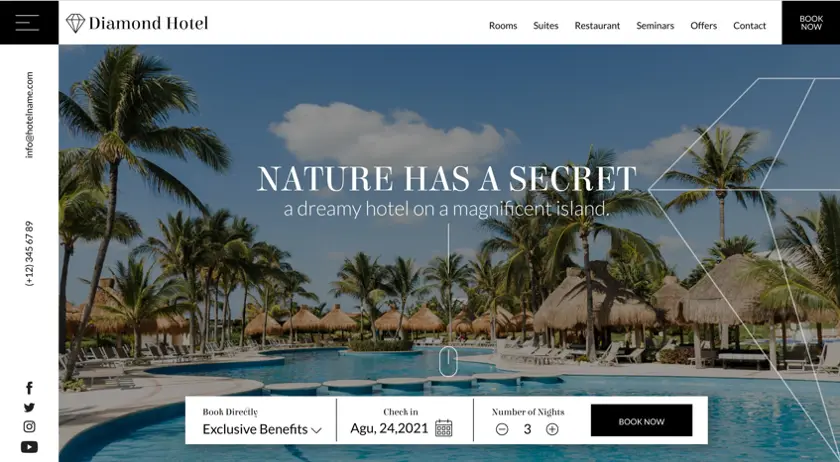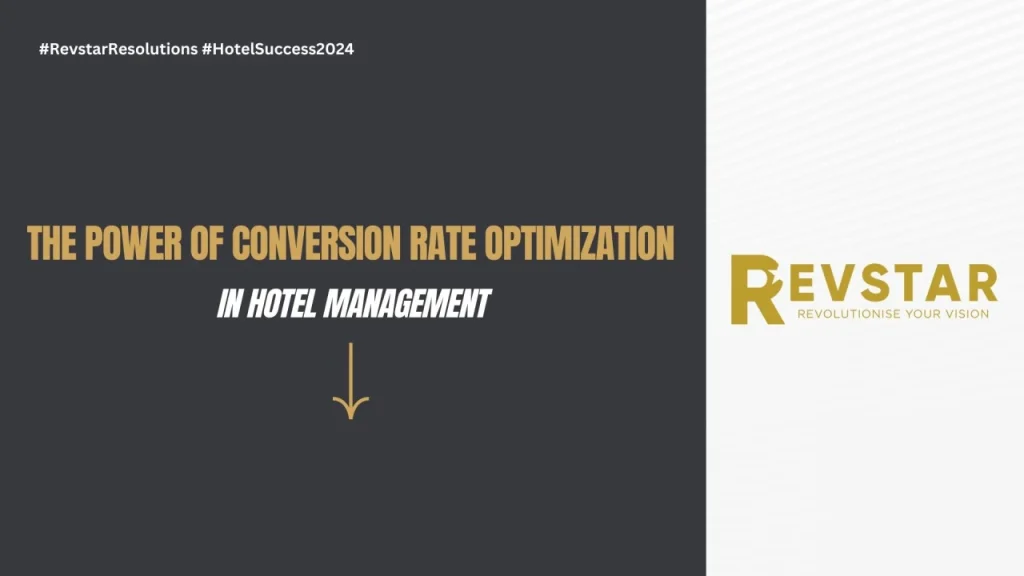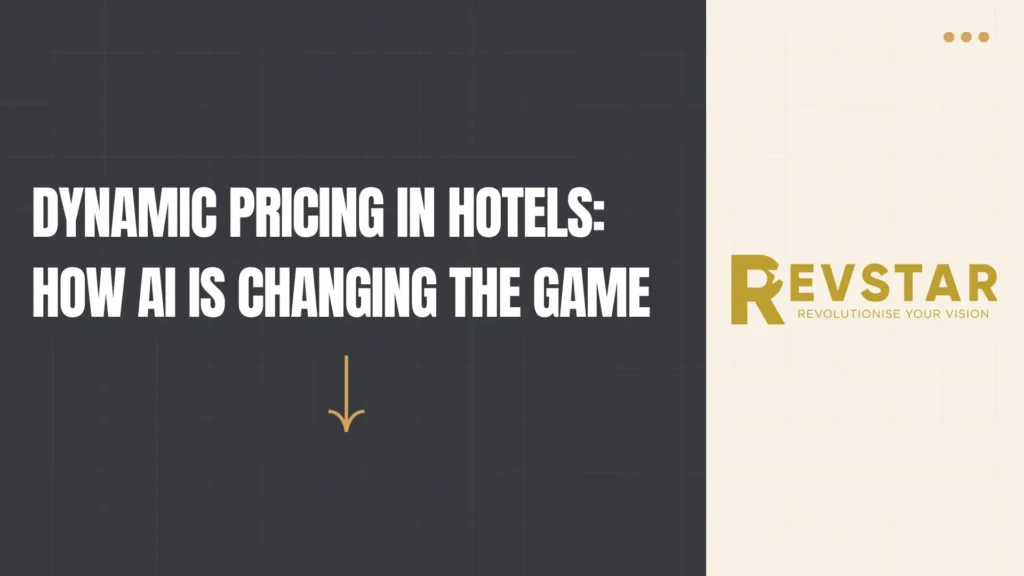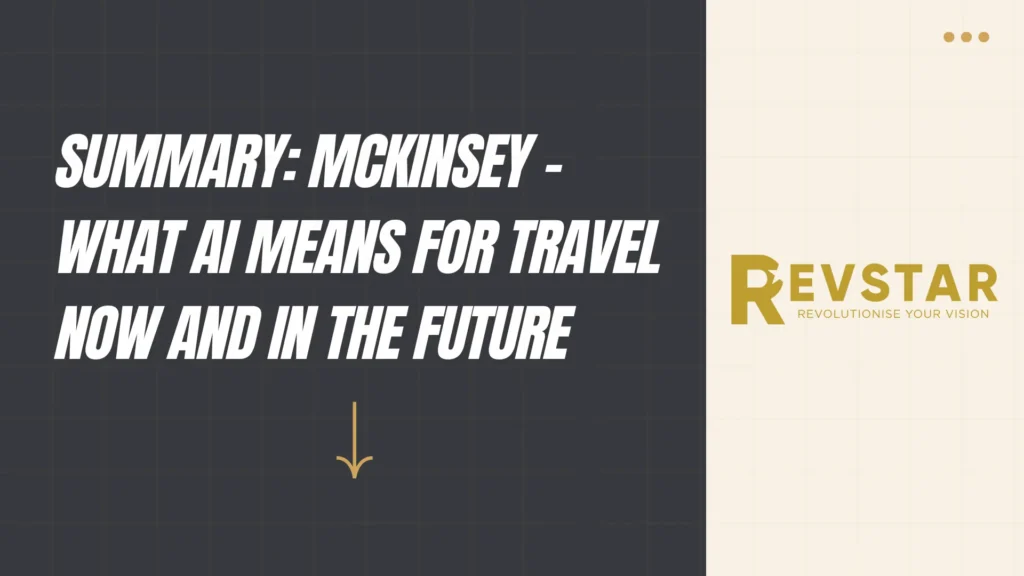Introduction
In today’s dynamic hotel industry, mastering Conversion Rate Optimization (CRO) is essential for unlocking the full revenue potential of your property. CRO is more than just a buzzword; it’s a strategic approach that focuses on optimizing the percentage of website visitors who take desired actions, such as making a reservation or signing up for newsletters. By fine-tuning various elements of your digital presence and guest experience, CRO empowers hoteliers to drive direct bookings, boost revenue, and maintain a competitive edge in the market.
Here are some key stats about CRO.
- The average website conversion rate is 2.35% across all sectors.
- The best-performing websites have a conversion rate of 11%.
- The conversion rate on desktops is 4.14%. Conversions through tablets account for 3.36% and phones for 1.53%.
- 94% of the web traffic is generated through organic results.
(Source – https://www.notifyvisitors.com/)
How does CRO Align with Revenue Management Concept?
Revenue managers who prioritize data-driven decision-making recognize the value of Conversion Rate Optimization (CRO) due to its focus on precise metrics and measurable returns on investment (ROIs).
Unlike certain marketing concepts where the impact on brand recognition and ADR (Average Daily Rate) is challenging to quantify, CRO provides clear Key Performance Indicators (KPIs) that are especially beneficial for small and medium-sized hotels. When considering revenue management outsourcing.
Conversion Rate Optimization (CRO) comprises two each of which is equally essential and deserving of significant attention. Additionally, consider the significance of utilizing hotel revenue management software or a hotel revenue management system to further enhance efficiency and effectiveness in revenue management processes.
Website Speed and Features
Website speed and features are in the first phase of optimization. Key elements like fast and user-friendly website and Call-to-Action (CTA) button, often labeled as “Book Now,” are fundamental for driving conversion rates.

Target and Segmentation
Targeting and segmenting guests form the second phase of optimization which target visitors into complete the bookings. Leveraging cognitive biases and behavioral marketing techniques can provide a extra hand with the decision making. Prioritizing aspects such as website performance, accessibility, and usability lay the groundwork for effective Website Conversion Optimization. Personalization emerges as a critical factor for success in this phase, ensuring that the right offer is presented to the ideal guest at the opportune moment, highlighting relevant benefits. his approach may sound familiar, as it aligns with the core principles of both advanced CRO and revenue management. Effective segmentation allows for tailored booking journeys and conversion strategies, accommodating diverse guest behaviors and preferences.
When is the right time to focus on CRO?
Determining the optimal focus on Conversion is crucial for maximizing hotel profitability. Given the substantial commissions charged by OTAs, typically ranging from 15-25%, revenue managers must prioritize efficient channels and undertake this critical marketing task. During times of crisis, such as the financial downturn or the COVID-19 pandemic, OTA sales dynamics undergo significant shifts. Many guests faced challenges related to cancellations through OTAs, leading to heightened trust in direct bookings via hotel websites. This increased trust offers guests the desired flexibility and autonomy in their booking experience. As the trend towards “booking direct” continues to gain momentum, the effectiveness of hotel websites will become increasingly pivotal, necessitating closer attention and strategic optimization efforts.
Conclusion
In conclusion, Conversion Rate Optimization (CRO) is a critical component of hotel revenue management, offering a strategic framework for improving conversion rates and driving direct bookings. By focusing on website optimization, leveraging data analytics, optimizing digital touchpoints, and embracing innovative technology, hotels can effectively optimize their conversion funnel, increase revenue, and stay competitive in a dynamic market landscape.




